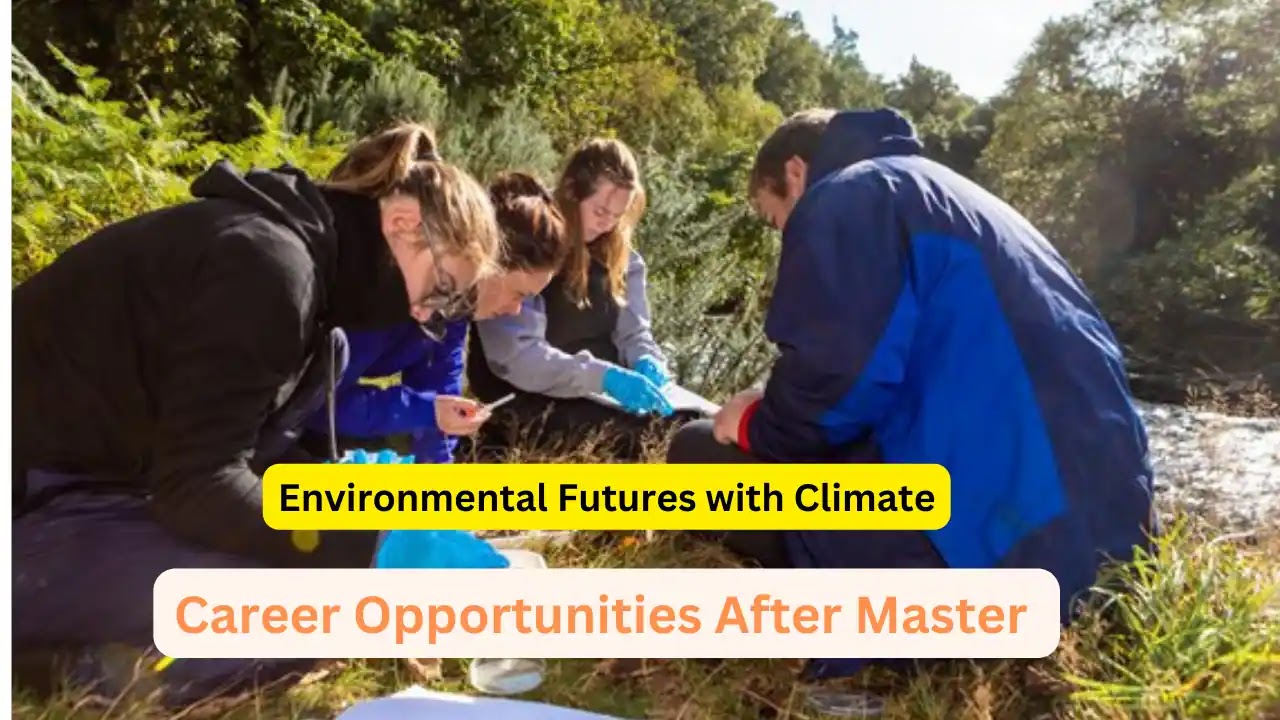Reason to choose MSc in environmental future with climate:
MSc in Environmental Futures with Climate Change will provide us with rigorous training to better understand the causes and impact of climate change and to formulate strategies and solutions. The programme will provide us with knowledge of how climate change science is linked to policy and policy makers, and will develop a foundation to understand prevention of the climate crisis and mitigation/adaptation that is grounded in the social, natural and environmental sciences. We will learn the scientific evidence that is needed for policymakers and societies to respond to these global challenges impacting the natural capital and the world’s economies. We will also learn and apply the appropriate research methods to study the environment and climate change, and will be fully prepared and supported to conduct a dissertation project on a relevant topic. We will be able to formulate theories that are amenable to multivariate hypothesis testing and will be able to implement advanced regression models. We will also learn how to handle complex data structures and implement the appropriate models for research in environmental studies. The programme provides a strong foundation for PhD research, but is also ideal for employment in a wide range of public and private industries, including government agencies, consultancies and NGOs/charities.
Career opportunities after MSc in environmental futures with climate:
Completing an MSc in Environmental Futures with a focus on climate provides you with a strong foundation for pursuing various career opportunities in the field of climate change and environmental sustainability Such as
Environmental Consultant: Provide expert advice to businesses, organizations, and governments on climate change mitigation and adaptation strategies, helping them reduce their environmental impact and comply with regulations.
Climate Policy Analyst: Work with government agencies, international organizations, or think tanks to analyze climate policies, assess their effectiveness, and provide recommendations for sustainable solutions.
Sustainability Manager: Help organizations develop and implement sustainability strategies, including energy efficiency, waste reduction, and carbon footprint reduction, ensuring they meet environmental targets and operate in a sustainable manner.
Climate Researcher: Conduct research on climate change, focusing on areas such as climate modeling, impacts assessment, renewable energy, or climate policy analysis, contributing to scientific knowledge and informing policy decisions.
Climate Data Analyst: Analyze climate data, develop models, and use statistical techniques to identify trends, predict future climate scenarios, and support evidence-based decision-making in various sectors, including agriculture, urban planning, and water resource management.
Climate Change Adaptation Specialist: Assist communities, businesses, and governments in assessing vulnerability to climate change impacts and developing strategies to adapt to changing conditions, such as implementing resilient infrastructure or designing climate-resilient land use plans.
Conclusion:
Career opportunities available to you will also depend on your prior experience, skills, and interests. Networking, gaining practical experience through internships or volunteering, and staying updated on the latest developments in the field will further enhance your prospects in the environmental and climate change sector.






0 Comments